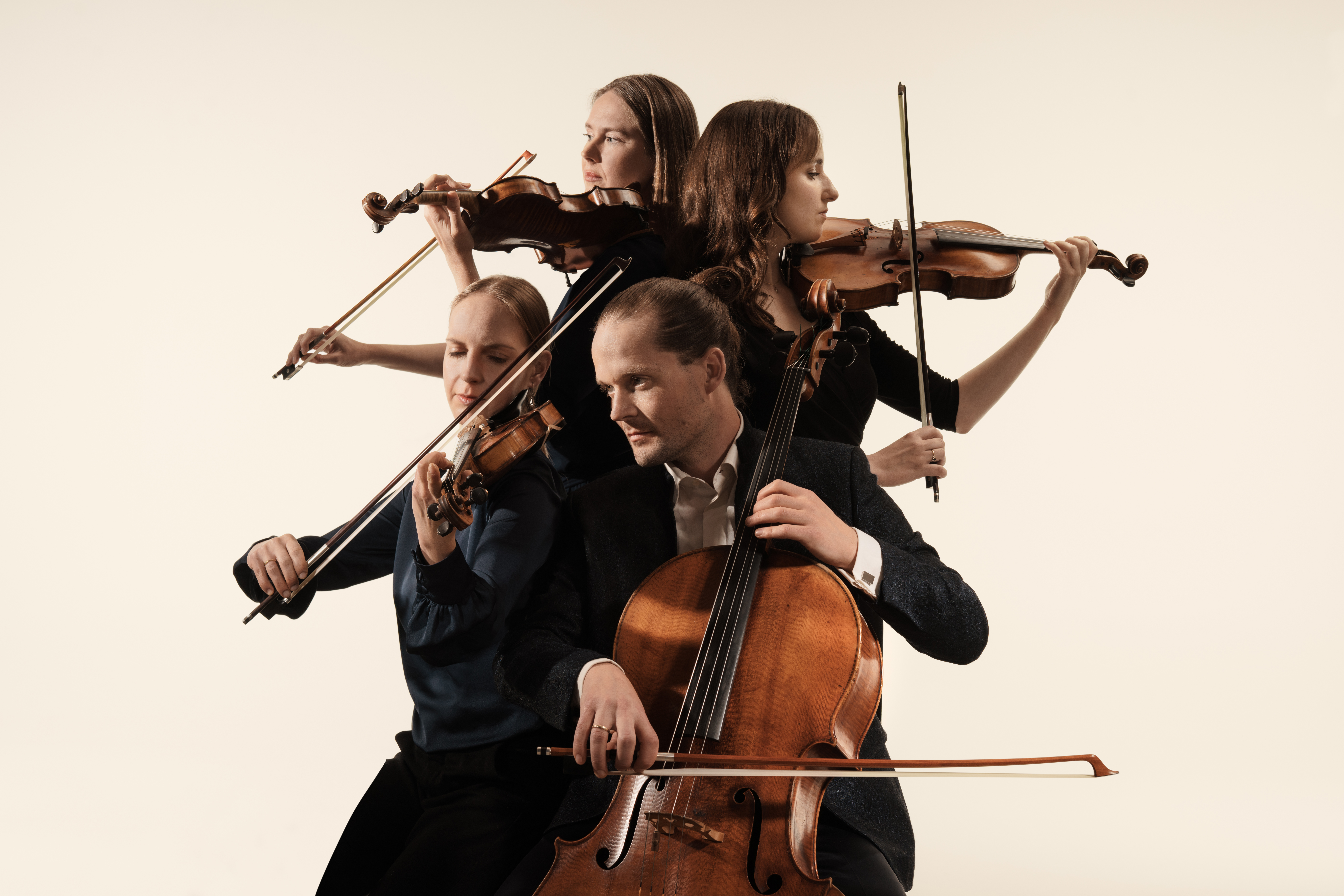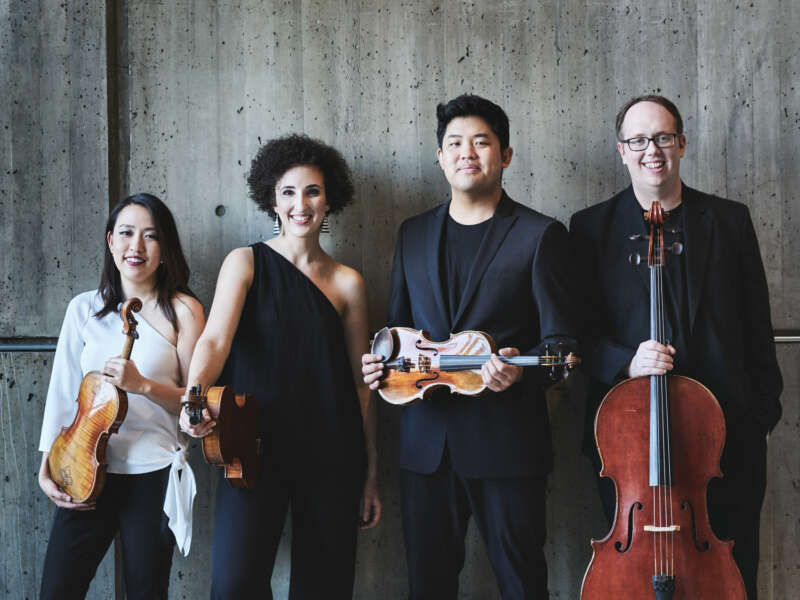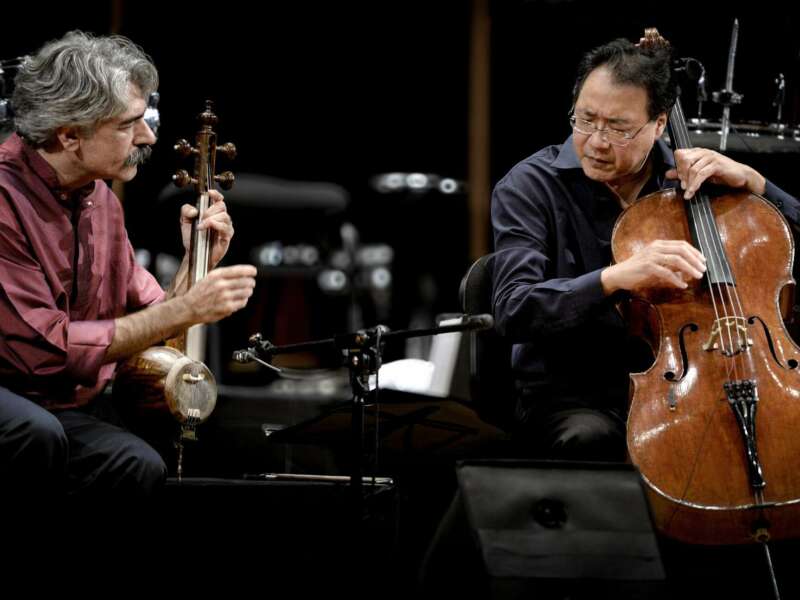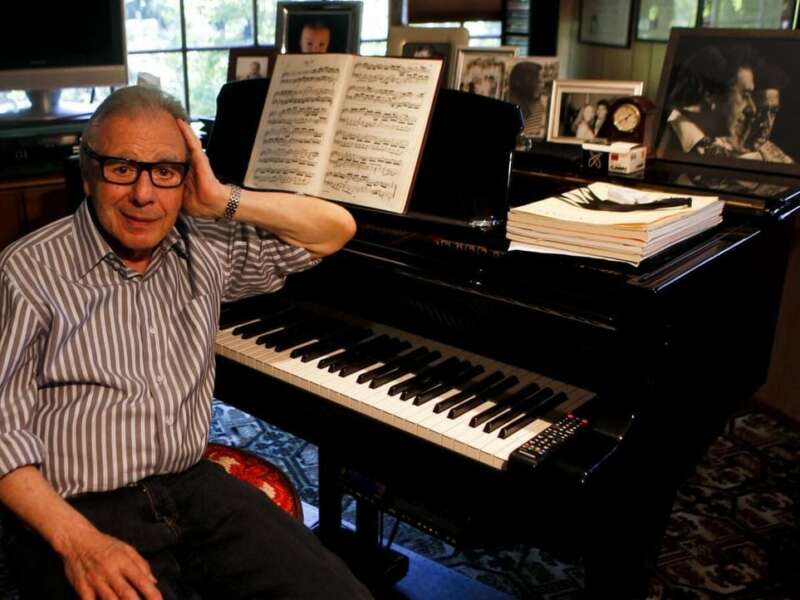Dudok Quartet Amsterdam's New Release, "What Remains"
Released on Rubicon Classics, the album pairs ancient works by Pérotin, de Machaut, and Gesualdo with newer works by Messiaen, Reich, and Joey Roukens
The Dudok Quartet Amsterdam recently released a new disc, titled What Remains, on Rubicon Classics. The album is centered on an eponymous work by the Dutch composer Joey Roukens, with the repertoire traversing both ancient works and their modern echoes.
The earliest work on the album Viderunt Omnes by Pérotin, and represents some of the earliest polyphonic music to be written down. The quartet also presents early works in the form of Machaut's Messe de Notre Dame and the sixteenth-century motets of Carlo Gesualdo.
As well as Roukens's What Remains, the modern side of the album features Steve Reich's Different Trains, which was originally written for the Kronos Quartet. Finally, the quartet re-arranges the "Louange à l'Éternité de Jésus", the central movement of Messiaen's Quartet for the End of Time.
You can find the album, here.
"We still find much joy in aligning works by a single composer, such as Haydn, Brahms or Tchaikovsky, enabling us to really dissect this composer's approach to the string quartet medium," the quartet told The Violin Channel. "Our new album 'What Remains' follows the other artistic thread: albums for which we gather repertoire by free association."
"Composer Joey Roukens is of the same generation as we are and is one of the most sought-after composers today, his works being performed by the Concertgebouw Orchestra, New York Philharmonic Orchestra and the Lucas & Arthur Jussen piano duo. We were thrilled to premiere his String Quartet No. 4 'What Remains' in 2020. His eclectic style is inspired by a whole millennium of music, so we asked ourselves 'why stick to the last 250 years during which string quartets were composed?'"
"We gave free rein to our intuition for gathering the repertoire on the album, which all resonates with the new music by Joey Roukens in its own way. We feel that the result is our most up-to-date way of giving new meaning to the term 'classical' music: to search for something relevant for audiences of today," they added.
"We hope that audiences can experience a sense of recognition when listening to this album. Not in the one-dimensional sense of finding it familiar and hardly surprising! Quite the opposite: we hope that people can recognize their own pleasures, fears, ambiguities, worries and adventures when listening to the album. We hope that the results of the album 'What Remains' can prove an inexhaustible source of the same range of feelings for our audiences."
june 2025
july 2025





































